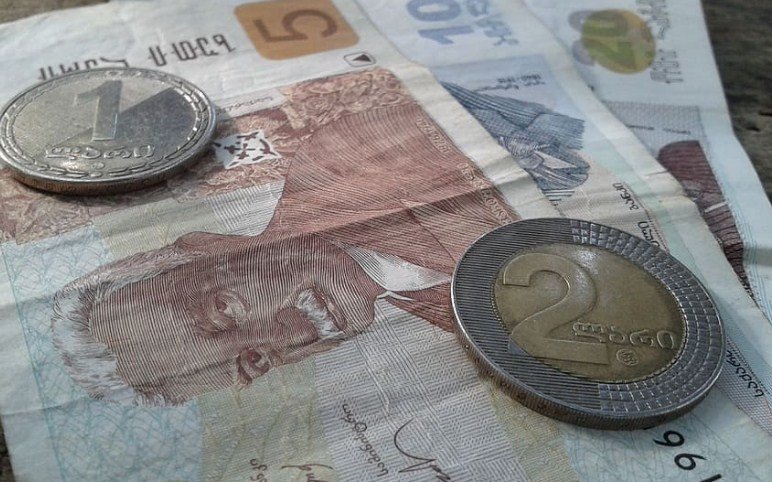The Georgian national currency, the lari, has reached a new record low against the US dollar, as the official exchange rate announced by the National Bank of Georgia (NBG) today is 2.6878 GEL per 1 USD. This is the lowest value of the lari since its introduction in 1995.
Causes of Lari Depreciation
The depreciation of the lari has been attributed to various factors, such as the impact of the coronavirus pandemic, the political instability in the country, the decline in tourism and remittances, and the weakening of the currencies of Georgia’s main trading partners, such as Turkey and Russia.
The coronavirus pandemic has severely affected Georgia’s economy, as the country’s gross domestic product (GDP) contracted by 6.1% in 2022. The pandemic also disrupted the tourism sector, which is one of the main sources of foreign currency inflow for Georgia. According to the National Statistics Office of Georgia, the number of international visitors to Georgia decreased by 81.5% in 2022 compared to 2021.

The political situation in Georgia has also contributed to the uncertainty and volatility in the foreign exchange market. The country has been experiencing a political crisis since the parliamentary elections in October 2022, which were disputed by the opposition parties. The opposition has been boycotting the parliament and demanding new elections, while the ruling Georgian Dream party has refused to concede any concessions. The political deadlock has raised concerns about the stability and democratic development of the country.
Another factor that has influenced the exchange rate of the lari is the performance of the currencies of Georgia’s main trading partners, especially Turkey and Russia. The Turkish lira and the Russian ruble have depreciated significantly against the US dollar in the past year, due to the economic and geopolitical challenges faced by these countries. The depreciation of these currencies has reduced the competitiveness of Georgian exports and increased the cost of imports.
Consequences of Lari Depreciation
The depreciation of the lari has had negative consequences for the Georgian economy and society, as it has increased the inflation rate, the public debt, and the poverty level in the country.
The inflation rate in Georgia has risen above the target range of the NBG, which is 3% ± 1.5%. According to the latest data, the annual inflation rate in December 2022 was 7.7%, mainly driven by the increase in food and fuel prices. The NBG has raised its key refinancing rate several times in 2022, from 8% in January to 11.5% in December, in order to curb the inflationary pressures and support the lari.
The public debt of Georgia has also increased as a result of the depreciation of the lari, as most of the debt is denominated in foreign currencies. According to the Ministry of Finance, the public debt of Georgia amounted to 66.5% of GDP as of November 2022, compared to 60.9% of GDP as of December 2021. The increase in the public debt has raised concerns about the fiscal sustainability and the debt servicing capacity of the country.
The depreciation of the lari has also affected the living standards and the purchasing power of the population, especially the low-income and vulnerable groups. According to the World Bank, the poverty rate in Georgia increased from 20.1% in 2019 to 21.9% in 2022, as measured by the international poverty line of $5.5 per day. The depreciation of the lari has eroded the real income and the savings of the people, and increased the cost of essential goods and services.
Outlook and Recommendations
The outlook for the lari exchange rate remains uncertain and depends on the developments in the domestic and external environment. The NBG has stated that it will continue to use all available instruments, including foreign exchange interventions, to ensure the price stability and the financial stability in the country. The NBG has also urged the government and the political parties to resolve the political crisis and to implement the necessary structural reforms to improve the economic prospects and the investor confidence in Georgia.
The International Monetary Fund (IMF) has also recommended the Georgian authorities to maintain a flexible exchange rate regime and to avoid excessive interventions in the foreign exchange market, as they could deplete the international reserves and undermine the credibility of the monetary policy framework. The IMF has also advised the government to pursue a prudent fiscal policy and to implement measures to enhance the revenue mobilization, the expenditure efficiency, and the debt management.
The World Bank has also suggested the Georgian government to adopt policies to diversify the economy and to reduce the dependence on external sources of income, such as tourism and remittances. The World Bank has also emphasized the need to strengthen the social protection and the health systems, and to support the human capital development and the digital transformation in the country.
